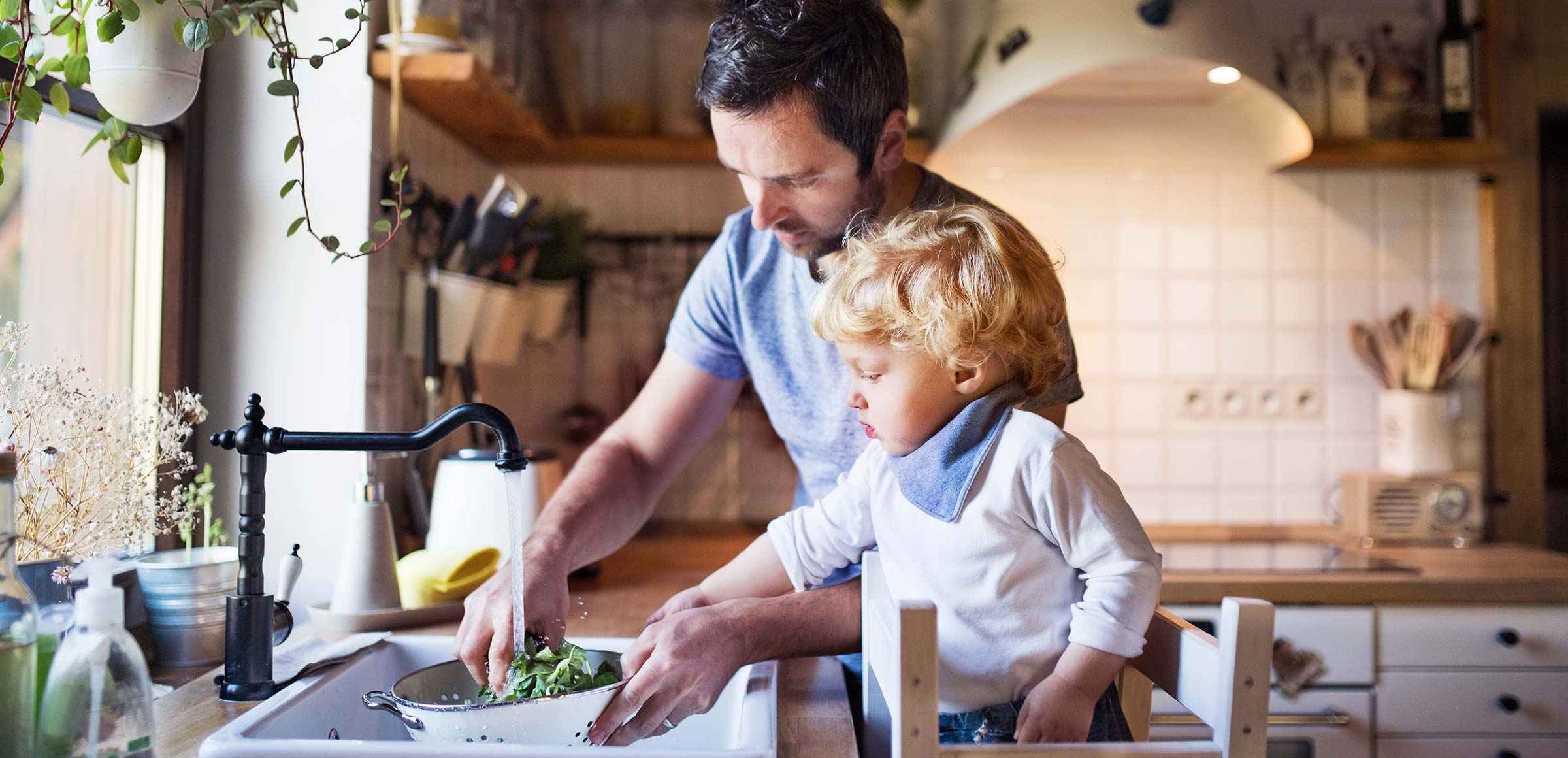If you prefer to always view the website in English, please click here.
One of the cornerstones of the Climate Change Act that has just been passed in Parliament is precisely in one of the areas of most spending: households.
Rehabilitation or reform for efficiency purposes is essential in the future, but also now, to achieve a lower energy consumption that has positive effects for you and society. Implementing a series of measures and tips will help you achieve this.
Orientation of the house and the different rooms
If you are going to build a new house, your plans should always be subject to a good orientation that takes advantage of the winter sun, and that in turn is cool in summer.
To achieve this double objective, which may seem antagonistic, you can use different methods ranging from movable architectural elements, outdoor vegetation, etc.
In most cases we do not have this possibility, we buy or rent a house that has certain characteristics, but even in these cases we can improve consumption. For example, do not use the most remote corner of your house as a work area, but rather choose a place with natural lighting and better air conditioning.
In short, seek to adapt each room or area to the use you will give it, particularly aiming to take advantage of the natural conditions that surround you.
Windows and energy loss
A basic aspect of correct air conditioning is to avoid thermal leakage, which mainly occurs through the windows.
New window models prevent these leaks of both the heat in winter and the cold in summer, making it one of the most profitable investments if you are going to renovate a house.
Thermal insulation
Many old houses do not have any thermal insulation beyond an air chamber in their walls.
Improving this point also means reducing energy consumption, with other advantages, such as reducing noise.
There are systems that are not expensive or cumbersome to improve insulation such as injecting mineral wool into the air chamber or using rigid panels attached to plasterboard.
More efficient lighting and appliances
Replacing high-consumption lighting systems, such as incandescent bulbs, with others of a lower consumption such as LED bulbs, and appliances with a more efficient energy label with others that have a higher rating results in significant savings, to which we must always add good habits.
- Take care when choosing and orienting LED lights and take advantage of a much more focused lighting.
- Update to LED systems in specific areas that, externally controlled, can modify the intensity. You will save money whilst creating more comfortable environments that are suitable for the light you need.
- Follow the advice of the manufacturers of the appliances, and take advantage of ecological programmes that use less electricity and water.
- Do not leave appliances such as computers or microwaves on standby, unplug them or cut off the power using power strips to eliminate phantom consumption.
- Use the appliances with the highest energy expenditure, such as washing machines and irons, during times of the day with the best energy price.
- Adapt the temperature of fridges and freezers to the exterior temperature, which may not be as low in winter.
- When cooking, as well as using more efficient systems, such as induction plates, try to adapt what you cook to the season of the year. Consuming more fresh products such as salads, gazpachos or cold purees in summer will help you spend less while contributing to a healthier diet.
Air conditioning
In addition to using the most appropriate air conditioning system for each home, the important thing is to have a comfort temperature that does not send your bill up. For example, in summer we have it set at 24-25 degrees, wearing comfortable clothes typical for the weather. Reducing by one degree already means spending 7% more.
To control this, it is essential to use thermostats to control the temperature in the different rooms of the house.
It also avoids certain bad uses, such as having the air conditioning on to maintain the temperature, even if there isn't anyone at home. All current systems allow you to reach a comfort temperature in just a few minutes.
Reduce water consumption
Water is another asset that we must take care of, and we can do so very simply by either installing small mechanisms, such as flow reduction systems and vaporisers on taps, as with our habits.
These are not just using the shower instead of the bath, or turning the taps off when they are not being used, it is also in using the appliances that consume a lot of water such as dishwasher and washing machine, more efficiently.
Again, ecological programs (ECO), in addition to washing at a lower temperature and thus spending less electricity, significantly reduce water consumption.
The 3Rs in your home: reduce, reuse, recycle
Finally, you can clearly commit to the circular economy in your home in its three areas:
- Reducing consumption: this ranges from "creating" more minimalist homes, to opting for options that don't require a purchase, such as lending or exchanging. Of course, this reduction is also in food, where a very high percentage is wasted, and in which, for example, buying on a daily basis or every few days is better than doing big shops.
- Reusing: using second-hand products or recyclable materials, in an increasingly wide scope, ranging from clothing to decoration among many others.
- Recycling: properly separating waste and using the clean points to try to give a second life to many of the components of the products we use on a day-to-day basis.
In short, whether spending a bit more, but in many cases just making small daily gestures, there are many areas of improvement to make our house more efficient.
Take a minute to find the product that best suits you:
{{firstStep.title}}
Take a minute to find the product that best suits you:
{{title}}
{{content.phone.title}}
{{content.phone.text}}
{{content.phone.phoneText}}
{{content.form.title}}
{{content.form.text}}
{{content.form.success.title}}
You don't need to adapt to Endesa's tariffs because they adapt to you. If you go to our catalogue you can compare the different tariffs for yourself. Or if you prefer, you can answer a few questions and we will take care of comparing all the different electricity and gas tariffs and then make a customised recommendation.
Take a minute to find the product that best suits you:
{{title}}
{{content.phone.title}}
{{content.phone.text}}
{{content.phone.phoneText}}
{{content.form.title}}
{{content.form.text}}
{{content.form.success.title}}
You don't need to adapt to Endesa's tariffs because they adapt to you. If you go to our catalogue you can compare the different tariffs for yourself. Or if you prefer, you can answer a few questions and we will take care of comparing all the different electricity and gas tariffs and then make a customised recommendation.
Comparison of Electricity and Gas Tariffs
You don't need to adapt to Endesa's tariffs because they adapt to you. If you go to our catalogue you can compare the different tariffs for yourself. Or if you prefer, you can answer a few questions and we will take care of comparing all the different electricity and gas tariffs and then make a customised recommendation.
Spend a minute to find the product which best adapts to you:
{{firstStep.title}}
Spend a minute to find the product which best adapts to you:
{{title}}
Spend a minute to find the product which best adapts to you:






